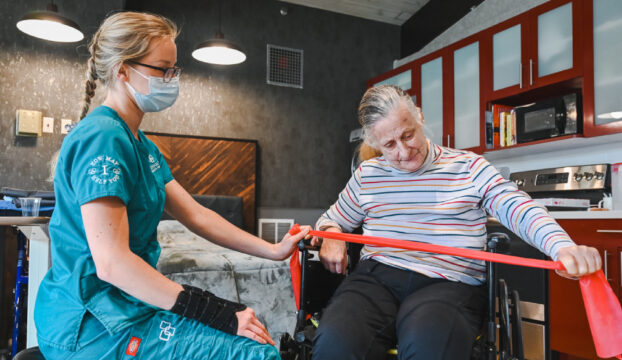Enhancing Performance and Minimizing Injury Risk via Comprehensive Evaluation of Balance and Stability through Functional Mobility Assessment.
Enhancing Performance and Minimizing Injury Risk via Comprehensive Evaluation of Balance and Stability through Functional Mobility Assessment.
Blog Article
Equilibrium and stability are essential elements of bodily fitness and overall health. They serve a critical part in everyday tasks, athletic capability, and harm prevention. When an individual has good balance and stability, they are less likely to fall or sustain damages during bodily exercises. One efficient way to assess these qualities is through Practical Motion Assessment (FMS). FMS is a method used to analyze motion styles and recognize discrepancies or deficiencies that could lead to harm.
Functional Motion Assessment includes a sequence of particular tests that assess how effectively a individual moves. The tests focus on fundamental movements such as squatting, lunging, and flexing. By watching these actions, coaches and medical experts can determine areas where an individual may struggle. For instance, if someone has difficulty maintaining equilibrium while executing a squatting, it may suggest a need for specific exercises to improve strength and coordination. This assessment not only identifies deficiencies but also helps to monitor advancement over a period.
In addition to this to identifying areas for enhancement, FMS serves a vital role in preventing harm. Many damages occur as a electrical stimulation therapy consequence of inadequate movement mechanics, which can be detected through functional evaluations. By tackling these issues early on, individuals can reduce their risk of harm during athletic or other physical activities. For example, a jogger who shows an discrepancy in their gait may be more susceptible to leg harm. By correcting these imbalances through targeted exercise programs, the chance of injury can be significantly decreased.
Additionally, improving performance is another advantage of conducting a comprehensive evaluation of equilibrium and steadiness. Athletes and active persons often aim to improve their performance in particular activities or exercises. A comprehensive understanding of their movement patterns allows coaches to create personalized training programs that focus on specific weaknesses. By enhancing balance and stability, athletes can improve their total performance, whether it’s running more quickly, leaping higher, or executing exact actions in their sport.
In conclusion, the importance of assessing equilibrium and steadiness through Functional Movement Assessment cannot be exaggerated. This comprehensive assessment serves as a basis for go to this site enhancing physical wellness, avoiding injuries, and enhancing sporting performance. By identifying areas of deficiency and putting into action targeted exercise approaches, individuals can achieve better results in their bodily activities. Emphasizing balance and stability not only results to better performance but also adds to a more wholesome, more active way of life.